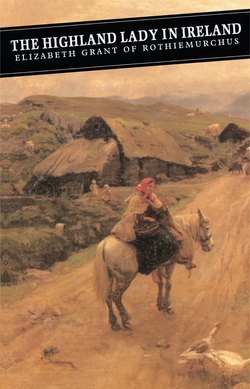Читать книгу The Highland Lady In Ireland - Elizabeth Grant - Страница 5
На сайте Литреса книга снята с продажи.
Author’s Note
ОглавлениеThe decision to publish a fourth impression of the Memoirs gives me the opportunity to add a few words to earlier introductions, marking the twenty-fifth anniversary of what I called “the first complete and authentic edition” of one of the masterpieces of nineteenth-century Scottish literature. This has been in print most of the years since Lady Strachey’s edition of 1898, and is still appreciated by scholars and the less academic reading public, which recognises and values Elizabeth Grant’s well-written recollections of her life and times.
This third impression of the first volume from the extracts of the journals the Highland Lady kept in the 1840s gives me the opportunity to emphasise that the twenty one years since its publication have not diminished the charm of her writing, or its significance as to how the ravages of the Famine years affected her part of Ireland. Extracts appear in anthologies, and she is trusted as a reliable witness by, for example, the plethora of books produced during the one hundred and fiftieth anniversary of this disaster.
Recently unearthed letters from the Doune archives give us a more rounded picture of one of the most fascinating writers in Scottish and Irish nineteenth century literature, complemented by material in the British Library and the National Library of Scotland. This is the basis for a biography currently being written that aims to set Elizabeth Grant of Rothiemurchus and Elizabeth Smith of Baltiboys into the context of her life and times.
These new sources help us to focus more sharply on the deep affection she, and all her family, felt for everything about Rothiemurchus and her beloved Duchus, an emotion that might have been more fully emphasized in the original introduction. One example was when she wrote about her emotions on reading about Queen Victoria’s visit to Laggan and Ardverikie in August 1847, a year after the Highland Lady’s last visit.
It is all so changed now. I grieve over this importation of Southrons, who with their gold steal from us the hearts of our followers – divide them with us at, any rate doing them little good, and, as I thought when there, some evil.
There was nevertheless some consolation that she felt her days were numbered: ‘Soon the progress of things will vex me no more, and the little while still to be given to me should be devoted to my duties here. A busy practical present instead of the poetick past.’
In fact, she was to live and write for nearly another forty years.
Andrew Tod, 2012
